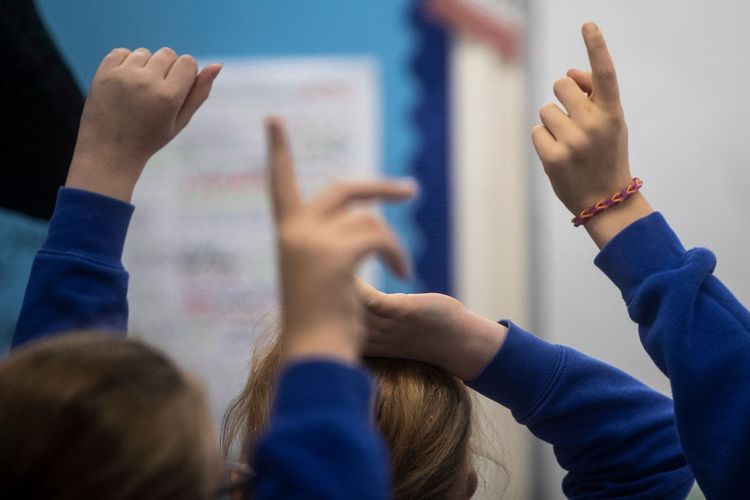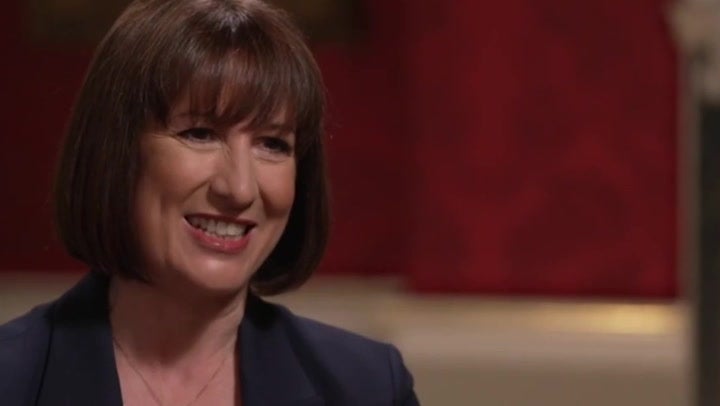What is the two-child benefit cap? Everything you need to know

Sign Up For Our Daily Morning Headlines Newsletter
Subscribe To Our Daily News Updates!
The Labour party has chosen not to eliminate the cap on benefits for families with more than two children, despite pressure to do so. They successfully voted against an amendment that would have removed this controversial measure from the legislation.

Rachel Reeves refuses to promise to remove the cap unless she can explain where the funding will come from. The chancellor claims that eliminating the cap would cost £3bn, which is more than the government has budgeted for.
Labour had some of its own members go against the government in a vote about getting rid of the cap. Seven Labour MPs voted against it, and 42 others chose not to vote at all. Even though Sir Keir Starmer still had enough support to win the vote, the incident will likely be seen as harmful to the party.
Stay tuned to The Independent for up-to-the-minute political news.
The leader of the country has decided to temporarily remove John McDonnell, Zarah Sultana, and five other members of the Labour party from their positions. Ms. Sultana has been very vocal about this decision, expressing her opinions on social media before the discussion took place. She wrote on Twitter: "If people claim there is no funding to eliminate the two-child benefit limit, they are simply not searching in the correct locations."
Get ready to dive into the details of the highly debated DWP policy.
The limit on benefits for families with two children means that parents cannot receive universal credit or tax credits for their third child. This rule was implemented by the Conservative party and went into effect in April of 2017. It only impacts children who were born after April 6, 2017.
The rule was brought in by former chancellor George Osbourne, along with a number of other modifications to the benefits system. The Conservative party stated that the changes were intended to motivate people on benefits to make similar decisions to those who rely solely on their own work for income.
Recent data from official sources reveals that there are 1.6 million children living in families impacted by this policy. Advocates, non-profit organizations, and politicians from various viewpoints are urging the new government to eliminate this measure.
In reaction to the most recent statistics, Liz Kendall, who is responsible for work and pensions, called child poverty a problem that is shameful for our society. She also stated that there are far too many children who are experiencing poverty.
She stated that their goal is to ensure that every child has a strong beginning in life by fulfilling their promise to carry out a bold plan to decrease child poverty.
The government has set up a special group to fight against child poverty. They have also introduced a new Children’s Wellbeing Bill as mentioned in the King's Speech.
This new law will provide complimentary morning meal programs for every elementary school student, enhances measures for safeguarding children, and sets restrictions on the amount of branded clothing schools can make mandatory.
However, a lot of advocates were let down when the two-child benefit limit was not mentioned in the speech. In response to the speech, the Child Poverty Action Group expressed dissatisfaction, stating that while the new government promised to address child poverty, there was not much in the speech to support that goal.
The policy of limiting families to two children is causing child poverty to increase significantly. Keeping this policy in place will negatively impact many more children and go against the government's efforts to reduce poverty.
Previous research conducted by campaign organizations indicates that removing the cap would assist in lifting one million children out of poverty, with 300,000 being completely taken out and 700,000 brought out of severe poverty. The study also reveals that 93% of parents affected by the policy state that it hinders their ability to purchase food.
The Labour party is refusing to eliminate the contentious policy despite pressure to do so, stating that they must prioritize economic obligations. Many activists are optimistic that the incoming government will abolish the measure in the upcoming Budget. However, the party has promised to adhere to stringent fiscal guidelines and minimize revenue-raising strategies as outlined in their election manifesto. As of now, they appear determined to follow through with their pledges.























































